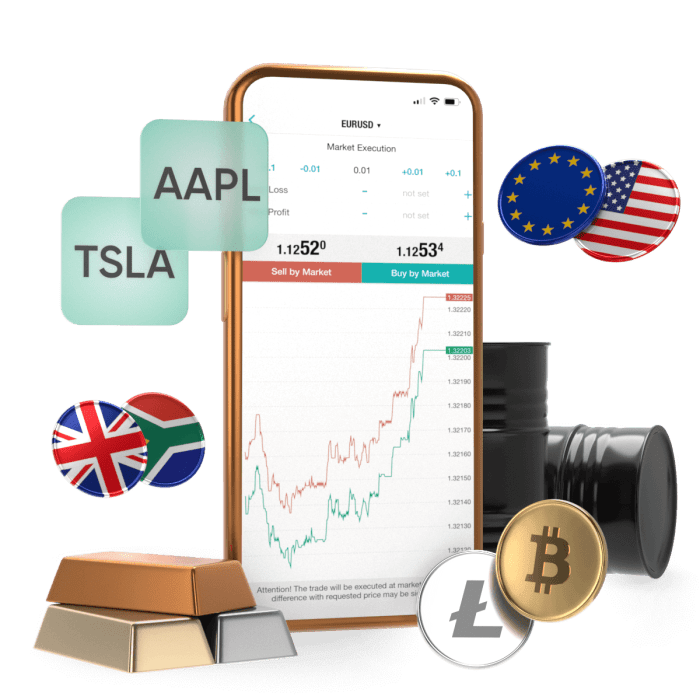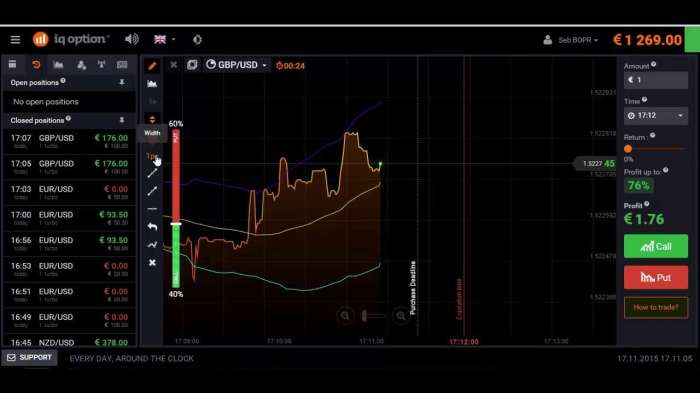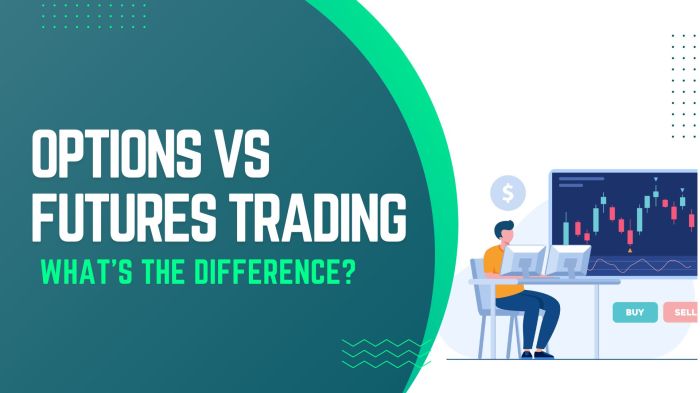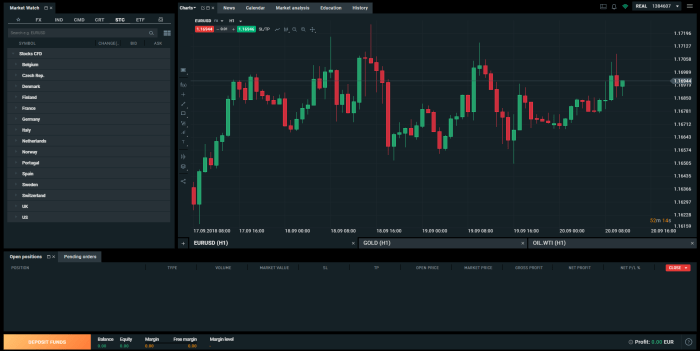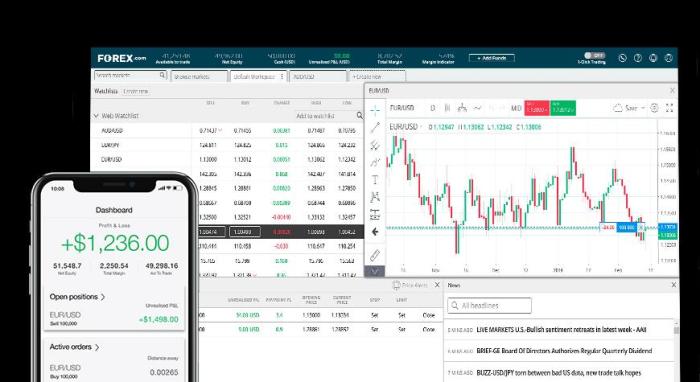
Forex trading community: It’s a wild world out there, a swirling vortex of charts, signals, and whispered strategies. Think diverse demographics, from seasoned veterans who’ve seen it all to wide-eyed newbies ready to conquer the markets. They connect through forums, social media groups, and exclusive online platforms, sharing insights, tips, and – let’s be honest – the occasional disastrous trade. This isn’t just about money; it’s about community, collaboration, and the thrilling (and terrifying) rollercoaster of global finance.
This journey into the heart of the forex trading community will explore its many facets, from the collaborative learning and mentorship opportunities to the ever-present risks of misinformation and scams. We’ll examine how technology fuels this dynamic ecosystem, the influence of regulation, and what the future holds for this ever-evolving landscape. Buckle up, it’s going to be a ride.
Defining the Forex Trading Community
The forex trading community is a globally dispersed network of individuals and institutions engaging in the buying and selling of currencies. It’s a diverse ecosystem, far from a monolithic entity, encompassing a wide range of participants with varying levels of experience, motivations, and resources. Understanding its composition is crucial for navigating this complex market effectively.
The forex market’s decentralized and 24/5 nature contributes to the community’s global reach and diverse makeup.
Demographics of the Forex Trading Community
The forex trading community represents a truly global demographic. It includes seasoned professionals managing billions of dollars for institutional investors, alongside retail traders working from home with smaller accounts. Age, location, educational background, and financial standing vary widely. We see young, tech-savvy individuals using algorithmic trading strategies alongside experienced veterans relying on decades of market analysis. The community encompasses individuals from all walks of life, united by a shared interest in currency trading. This diversity brings a wide range of perspectives and approaches to the market.
Roles and Experience Levels within the Forex Trading Community
The community encompasses a broad spectrum of roles and experience levels. At one end, we find institutional traders employed by large banks, hedge funds, and multinational corporations, managing massive sums of money. These individuals often possess advanced financial qualifications and years of experience. In the middle are retail traders, ranging from beginners with limited knowledge to experienced individuals who have developed sophisticated trading strategies. Finally, there are educators, analysts, and software developers who support the community by providing educational resources, market insights, and trading tools. This diverse range of participants creates a dynamic and ever-evolving market landscape.
Communication Channels Used by Forex Traders
Forex traders utilize a variety of communication channels to share information, discuss strategies, and network with fellow traders. Online forums dedicated to forex trading are a popular choice, providing platforms for discussion and the sharing of trading ideas. Social media platforms, such as Twitter and Telegram, are also extensively used, enabling real-time updates and rapid dissemination of market news and analysis. Dedicated forex trading apps and platforms often incorporate built-in chat functions, facilitating direct communication between traders. Finally, many traders participate in webinars, online courses, and in-person seminars to enhance their knowledge and network with other professionals.
Comparison of Different Forex Trading Communities
The following table compares several different forex trading communities based on size, focus, and activity level. Note that these are illustrative examples, and many other communities exist with varying characteristics.
| Community Name | Size (Approximate) | Focus | Activity Level |
|---|---|---|---|
| Forex Factory | Large (Millions of users) | General Forex Discussion, News, and Analysis | High |
| BabyPips | Large (Hundreds of thousands of users) | Education and Beginner-Friendly Resources | High |
| Myfxbook | Medium (Tens of thousands of users) | Performance Tracking and Social Trading | Medium |
| Specific Telegram Groups | Small to Medium (Varies widely) | Niche Strategies, Specific Currency Pairs, or Educational Focus | Varies widely |
Information Sharing and Learning within the Community

Forex trading communities thrive on the exchange of knowledge and experience. The collaborative nature of these groups allows traders of all levels to learn from each other, share insights, and refine their strategies. This shared learning environment is crucial for navigating the complexities and inherent risks of the forex market.
The methods used to disseminate trading strategies and insights are diverse and constantly evolving. Many communities leverage online forums and dedicated chat platforms for real-time discussions and the rapid sharing of market updates. Educational resources, such as webinars, recorded training sessions, and detailed strategy guides, are frequently provided by experienced members or community administrators. Furthermore, the sharing of trading journals, which meticulously document trades and their rationale, offers a unique window into the decision-making processes of successful traders. This allows others to learn from both successes and mistakes.
Methods of Sharing Trading Strategies and Insights
Forex communities utilize a variety of methods to facilitate information exchange. These include structured educational programs led by experienced traders, informal discussions on trading forums, the sharing of personal trading journals, and the analysis of market data and charts in collaborative sessions. Many communities also host regular webinars and workshops focusing on specific trading strategies, risk management techniques, and market analysis methodologies. The use of social media platforms, though less structured, also plays a significant role in disseminating quick updates and opinions.
Examples of Successful Collaborative Learning Initiatives
One successful example is the collaborative development of automated trading systems (bots). Experienced programmers and traders within a community pool their expertise to create, test, and refine algorithms, leading to superior trading systems that benefit all participants. Another example is the peer review of trading plans. New traders can submit their trading plans for review by more experienced members, receiving valuable feedback and identifying potential flaws before risking real capital. This collaborative approach fosters a culture of continuous improvement and risk mitigation. Finally, the shared analysis of market events and their impact on specific currency pairs allows for a more comprehensive understanding of market dynamics.
Common Misconceptions and Myths Perpetuated within Forex Trading Communities
One prevalent myth is the promise of “get-rich-quick” schemes. Many newcomers are lured by unrealistic claims of guaranteed profits and effortless wealth creation. This misconception often leads to significant financial losses. Another common fallacy is the belief that technical analysis alone can consistently predict market movements. While technical analysis is a valuable tool, it’s crucial to understand that it’s not a crystal ball and should be used in conjunction with fundamental analysis and sound risk management. Finally, the idea that trading is a zero-sum game, where one trader’s profit necessarily equates to another’s loss, is an oversimplification. While there are elements of this, the market’s overall liquidity and the participation of non-trading entities mean this is not always the case.
The Role of Mentorship and Experienced Traders in Guiding Newcomers
Experienced traders play a vital role in guiding newcomers by providing personalized support, sharing their knowledge, and fostering a supportive learning environment. Mentorship programs, both formal and informal, can significantly improve the success rate of new traders. Mentors can offer valuable insights into risk management, trade psychology, and effective trading strategies, helping to mitigate the common pitfalls of inexperienced traders. They can also provide emotional support during periods of market volatility or losses, helping newcomers to maintain a disciplined and rational approach. The guidance of experienced traders is crucial in navigating the complexities of the forex market and fostering long-term success.
Risks and Challenges in Forex Trading Communities
The allure of quick profits in the forex market attracts many, leading to a surge in online communities dedicated to trading. However, these communities, while offering valuable learning opportunities, also present significant risks and challenges that aspiring and experienced traders alike must be aware of. Navigating this landscape requires a discerning eye and a healthy dose of skepticism. Failure to do so can lead to significant financial and emotional distress.
Misinformation and Scams in Online Forex Communities
Online forex communities are breeding grounds for both legitimate advice and outright scams. The anonymity of the internet allows unscrupulous individuals to promote fraudulent trading schemes, often disguised as legitimate investment opportunities. These scams can range from fake trading signals and misleading indicators to outright Ponzi schemes promising unrealistic returns. The lack of regulation in many online communities makes it difficult to identify and prosecute these perpetrators. For example, a common scam involves guaranteeing huge returns with little to no risk, often using testimonials and manipulated charts to lure unsuspecting victims. Another tactic involves pressuring individuals into investing large sums quickly, before they have time to properly research the opportunity.
Psychological Pressures and Emotional Challenges Faced by Forex Traders
Forex trading is an emotionally demanding activity. The constant fluctuations in currency values can lead to significant stress, anxiety, and even depression. The pressure to make quick profits, coupled with the potential for substantial losses, can create a highly volatile emotional environment. Many traders struggle with fear of missing out (FOMO), leading to impulsive decisions and poor risk management. The feeling of being constantly “on,” monitoring the market, can also lead to burnout and exhaustion. For example, a trader who experiences a series of losses may become overly risk-averse, missing out on potential gains, or may take on excessive risk in an attempt to recoup losses quickly, leading to further losses.
Risks Associated with Following Trading Signals Blindly
Many forex communities offer trading signals, which are recommendations to buy or sell a specific currency pair at a particular time. While some signal providers are legitimate and experienced traders, many are not. Blindly following trading signals without understanding the underlying rationale or conducting your own analysis is extremely risky. The signals may be based on outdated information, manipulated data, or simply be part of a scam designed to benefit the signal provider at the expense of the followers. A trader who relies solely on signals without developing their own trading strategy is essentially relinquishing control of their investments and is more vulnerable to significant losses. Consider the example of a signal provider who consistently recommends trades that benefit them while leading their followers to losses; the provider profits from commissions or spreads while the followers lose their capital.
Identifying and Avoiding Fraudulent Activities within Forex Trading Communities
Identifying and avoiding fraudulent activities requires vigilance and a healthy dose of skepticism. Here’s a guide to help you navigate the treacherous waters of online forex communities:
- Verify Credentials: Thoroughly research the background and credentials of any individual or company offering trading advice or signals. Look for verifiable evidence of their trading success and experience.
- Beware of Guaranteed Returns: No legitimate investment opportunity guarantees returns. Any promise of guaranteed profits should be viewed with extreme suspicion.
- Avoid High-Pressure Tactics: Legitimate investment opportunities do not involve high-pressure sales tactics or urgent calls to action.
- Check for Testimonials and Reviews: While testimonials can be manipulated, examining multiple sources and looking for patterns can help identify potential scams.
- Conduct Your Own Research: Never rely solely on the advice of others. Always conduct your own thorough research before making any trading decisions.
- Start Small: Begin with a small amount of capital to test strategies and minimize potential losses.
- Diversify Investments: Do not put all your eggs in one basket. Diversify your portfolio to mitigate risk.
The Impact of Technology on Forex Trading Communities: Forex Trading Community
The forex market, once the exclusive domain of large banks and institutional investors, has been democratized by technology. This digital revolution has profoundly impacted forex trading communities, fundamentally altering how traders communicate, learn, and make decisions. The ease of access and the interconnectedness fostered by technology have created both incredible opportunities and significant challenges for participants.
Technological advancements have dramatically reshaped communication and interaction within forex trading communities. Instantaneous communication via online forums, chat rooms, and social media platforms allows traders from across the globe to connect and share information in real-time. This rapid exchange of ideas and perspectives fosters a dynamic learning environment, where both experienced and novice traders can learn from each other’s experiences and strategies. The speed and efficiency of online communication also enable traders to react quickly to market events and adjust their trading plans accordingly.
Trading Platforms and Tools that Foster Community Engagement
Many modern forex trading platforms incorporate features specifically designed to enhance community engagement. For example, some platforms include integrated social trading features, allowing users to follow the trades of experienced traders and copy their strategies. Others offer built-in chat functions, enabling traders to discuss market analysis, share insights, and collaborate on trading ideas. These integrated community features create a sense of camaraderie and shared purpose, fostering a supportive environment for learning and growth. Furthermore, educational resources such as webinars, tutorials, and analytical tools often provided within these platforms further strengthen the community aspect, providing accessible learning opportunities for all skill levels. Think of platforms like MetaTrader 4 and 5, cTrader, or TradingView – each offering various social features that allow users to interact and learn.
The Role of Social Media in Influencing Trading Decisions and Community Sentiment
Social media platforms like Twitter, Facebook, and Telegram have become powerful tools for disseminating forex-related information and influencing trading decisions. While offering valuable insights and market analysis, social media also presents challenges. The rapid spread of information, often unverified, can lead to the formation of speculative bubbles or exacerbate market volatility. The herd mentality, fueled by social media trends, can cause traders to make impulsive decisions based on emotion rather than rational analysis. For instance, a widely shared, yet inaccurate, prediction on a social media platform can trigger a significant shift in market sentiment and trading activity, regardless of its factual basis. The potential for misinformation and manipulation underscores the importance of critical thinking and due diligence in navigating this landscape.
Pros and Cons of Using Online Forex Trading Communities
The accessibility and benefits offered by online forex trading communities are undeniable, but they also come with their own set of risks.
Here’s a balanced look at the advantages and disadvantages:
- Pros:
- Access to diverse perspectives and trading strategies from traders worldwide.
- Opportunity to learn from experienced traders and gain valuable insights.
- Enhanced learning through shared experiences and collaborative problem-solving.
- Faster access to market news and analysis.
- A supportive network to share experiences and overcome challenges.
- Cons:
- Risk of exposure to misinformation and manipulative tactics.
- Potential for emotional trading influenced by herd mentality and social pressure.
- Difficulty in verifying the credibility and expertise of information sources.
- Potential for scams and fraudulent activities targeting community members.
- Time-consuming engagement can distract from focused trading strategies.
Regulation and Governance within Forex Trading Communities

The forex market, a global behemoth, operates largely without a single, overarching regulatory body. This decentralized nature presents both opportunities and challenges, particularly within the burgeoning online forex trading communities. Understanding the regulatory landscape and the ethical responsibilities within these communities is crucial for both individual traders and the overall health of the market.
Regulatory bodies, at the national level, play a significant role in overseeing forex trading activities within their jurisdictions. These bodies, like the Commodity Futures Trading Commission (CFTC) in the US or the Financial Conduct Authority (FCA) in the UK, primarily focus on regulating brokers and financial institutions offering forex trading services. Their oversight extends to ensuring fair practices, preventing market manipulation, and protecting investors from fraud. However, their reach into the less formal aspects of online forex trading communities is often limited.
The Role of Regulatory Bodies in Overseeing Forex Trading Activities and Online Communities
National regulatory bodies primarily focus on licensed brokers and their activities. This includes monitoring compliance with regulations regarding capital adequacy, client segregation of funds, and anti-money laundering (AML) measures. While they may investigate instances of fraud or market manipulation originating within online communities, direct regulation of the communities themselves is often challenging. The decentralized and often international nature of these online spaces makes enforcement difficult. Regulatory efforts are often reactive, responding to specific incidents rather than proactively shaping community behavior.
Ethical Considerations and Responsibilities of Individuals within Forex Trading Communities
Ethical conduct within forex trading communities is paramount. Members have a responsibility to share information honestly and transparently, avoiding misleading or manipulative tactics. This includes refraining from promoting get-rich-quick schemes, guaranteeing profits, or providing unsubstantiated trading advice. Furthermore, individuals should be mindful of the potential for misinformation to spread rapidly within these communities, and take care to verify information before acting upon it. Responsible participation means acknowledging the inherent risks of forex trading and avoiding the propagation of unrealistic expectations.
The Impact of Regulations on Information Sharing and Community Growth
Regulations, while aimed at protecting investors, can inadvertently impact information sharing within forex trading communities. Stricter rules around promoting financial products or providing investment advice might stifle open discussions and the free exchange of ideas. This can hinder community growth and limit access to diverse perspectives. Conversely, a clear regulatory framework can foster trust and transparency, leading to more robust and reliable information sharing. The balance between protecting investors and fostering open communication is a delicate one that requires careful consideration.
A Hypothetical Regulatory Challenge and Possible Solutions
Imagine a popular online forex trading forum where a prominent member, known for their seemingly successful trading strategies, begins promoting a new, unregulated cryptocurrency trading platform. This platform promises exceptionally high returns with minimal risk, attracting numerous followers within the community who subsequently invest significant sums of money. The platform later collapses, resulting in substantial financial losses for the community members.
This scenario highlights a regulatory challenge: the difficulty in policing the promotion of unregulated financial products within online communities. Possible solutions include:
- Increased regulatory scrutiny of online platforms hosting forex trading communities, to identify and address potentially fraudulent activities.
- Enhanced collaboration between regulatory bodies and online platforms to develop mechanisms for flagging and removing misleading or fraudulent content.
- Education and awareness campaigns to equip community members with the knowledge and skills to critically evaluate information and identify potential scams.
- Strengthening the legal frameworks to hold individuals responsible for promoting unregulated financial products within online communities.
The Future of Forex Trading Communities
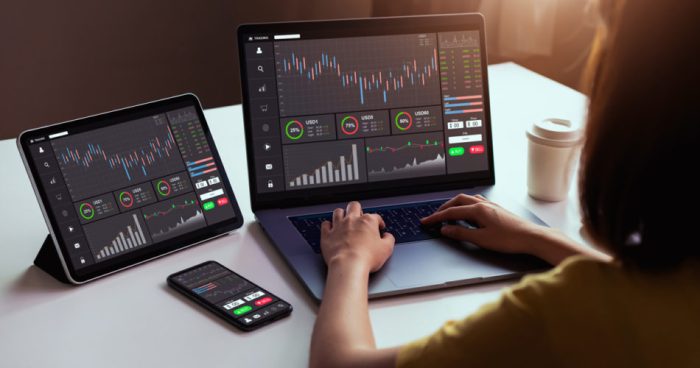
Forex trading communities, already vibrant hubs of information and interaction, are poised for significant transformation in the next decade. The convergence of technological advancements, shifting demographics, and evolving regulatory landscapes will reshape how traders connect, learn, and strategize. This evolution will, in turn, impact the broader forex market, potentially increasing both its efficiency and its complexity.
The integration of artificial intelligence and blockchain technology will fundamentally alter the forex trading community landscape. AI-powered tools will personalize learning experiences, offering tailored educational resources and risk management strategies based on individual trader profiles and performance. Blockchain technology, with its inherent transparency and security, could revolutionize aspects like community governance, facilitating secure and verifiable record-keeping of transactions and community contributions. This could lead to increased trust and participation.
The Influence of Emerging Technologies, Forex trading community
AI’s role will extend beyond personalized learning. Sophisticated algorithms can analyze vast datasets of market data, news sentiment, and social media activity to identify emerging trends and predict market movements, creating powerful predictive tools accessible to community members. This enhanced analytical capability could democratize access to advanced trading strategies, potentially leveling the playing field for both novice and experienced traders. Blockchain’s impact will be felt in areas like decentralized trading platforms, facilitating peer-to-peer transactions with reduced reliance on centralized intermediaries. This increased transparency and reduced reliance on third-party platforms could create more equitable opportunities for community members. For example, imagine a community-governed platform where trading fees are significantly lower due to blockchain’s efficiency, empowering smaller traders and fostering a more inclusive trading environment.
Demographic Shifts and Community Composition
Over the next 5-10 years, we can expect a diversification in the forex trading community’s demographics. Increased accessibility through mobile trading apps and online educational resources will attract a younger, more globally diverse group of participants. This broader participation could lead to a wider range of trading styles and perspectives within the community, fostering innovation and collaborative learning. We might see the rise of niche communities focused on specific trading strategies, asset classes, or even geographic regions, leading to more specialized knowledge sharing and a more vibrant ecosystem of sub-communities. For instance, a community dedicated to algorithmic trading strategies could flourish, attracting individuals with strong programming skills and an interest in quantitative analysis.
Impact on the Overall Forex Market
The evolution of forex trading communities will have a profound impact on the overall forex market. The increased accessibility to information and advanced analytical tools facilitated by technology will likely lead to greater market efficiency. Improved risk management practices, driven by AI-powered tools and community-based learning, could reduce the frequency and severity of market crashes caused by irrational exuberance or panic selling. However, this increased efficiency could also increase market volatility as a greater number of traders with access to advanced tools make faster and more informed decisions. The rise of decentralized trading platforms facilitated by blockchain could challenge the dominance of traditional brokerage firms, leading to a more competitive and potentially less costly market for individual traders. The increased transparency and security inherent in blockchain could also lead to greater regulatory compliance and a reduction in fraudulent activities.
Final Thoughts
The forex trading community is a complex tapestry woven with threads of opportunity, risk, and human connection. While the potential for profit is undeniable, navigating this world requires vigilance, a healthy dose of skepticism, and a commitment to continuous learning. By understanding the dynamics of this community, its inherent challenges, and the ever-evolving technological landscape, traders can significantly improve their chances of success while mitigating the considerable risks involved. The future of forex trading is inextricably linked to the evolution of its community – a future brimming with both potential and peril.
Enhance your insight with the methods and methods of trading contest forex.
Do not overlook the opportunity to discover more about the subject of forex trading strategy pdf.
